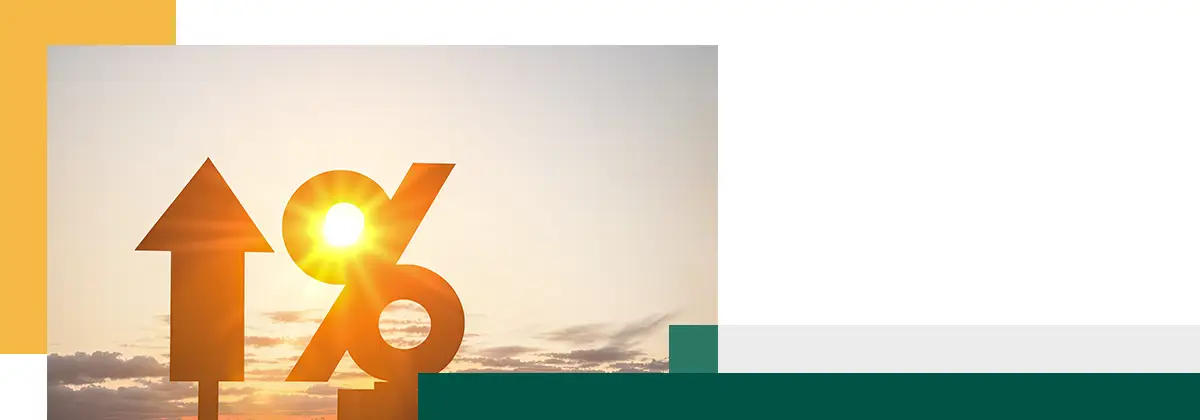Eight times a year, the Bank of Canada will make an announcement on the key interest rate, and if projections are correct, we are going to see interest rates rise.
You could be thinking, what does that mean, how will it affect me, what can I do?
What does that mean?
When the Bank of Canada starts raising the interest rates, the cost of borrowing will go up. The banks and other financial institutions and lenders are going to start to raise their interest rates.
How will it affect you?
It may not affect you at all or it may have a significant affect. This will depend on if you are carrying debts, and what type of debt those are.
Mortgage
If you are locked in with your current mortgage, then the rise of the interest rate isn’t going to affect you until you need to renew your mortgage. If the interest rates continue to rise, then so will the interest rate when you go to renew your mortgage which potentially will increase your payments.
If you have an open mortgage with variable interest rates or a home equity line of credit, then with the rise in the Bank of Canada’s interest rate, your rate and therefore your payments will increase.
Vehicle Loan
Vehicle loans are usually for a set interest rate; therefore, your current loan agreement will not be affected. Once the interest rates start to increase, it follows that the interest rate on a new loan will also start to rise.
Vehicle Lease
Vehicle leases are usually for a set interest rate; therefore, your current lease agreement will not be affected. If you are planning to buy out the lease at the end and need to borrow, then you may be borrowing at a higher rate of interest.
Line of Credit
A line of credit is generally for a variable interest rate, therefore if the interest rates rise, so will the payment on your line of credit.
Credit Card
Most credit cards are going to be for a fixed rate of interest, therefore a rise in the Bank of Canada interest rates shouldn’t affect you. Be aware that if you have a special low interest rate credit card, this rate can be raised if you are late making a payment
Deferred Payment Plans
If you have chosen to buy now and pay later, you may have to pay a higher interest rate when the payments finally begin.
What Can I Do?
Mortgage
Are your current payments affordable? What will happen if the payments go up when you need to renew your mortgage? Start planning now on ways to increase income or decrease expenses to make the rise in your mortgage payment affordable.
If you have an open mortgage or a home line of credit, your interest rate is variable. Before the rates increase, talk with your lender to find out what options you have to lock in your mortgage and if this will be the best option for you.
Vehicle Loan
If you are in a loan agreement, then the change of interest rates is not going to affect this loan. Keep your loan payments up to date and current.
If you need a vehicle and are looking to finance the vehicle, then you may want to start that process now rather than waiting, to get in at a lower rate of interest.
Vehicle Lease
If you want to keep the vehicle that you are leasing and were considering getting a loan for the buy out amount, you might consider finding out if you can buy out the vehicle early. If this is allowed, find out what the cost to you would be, and if you think that gives you fair value for the vehicle, see if you can get a loan before the interest rates start to increase too much.
If you were thinking of getting into a leased vehicle, now might be the time, before the rates start to rise.
Line of Credit
Start looking at ways to cut expenses so that you can afford to pay down your line of credit. This means that your payments are more, usually a lot more, than your minimum payment. As you bring the balance lower, ask your financial institution to decrease your limit. Decreasing your limit will help with the temptation to use up the limit once you have started to pay it down.
If the option of paying off the line of credit isn’t going to work for you, look at locking in the debt now and cancelling the line of credit. Locking in the debt will give you one monthly payment that should be in your budget to pay.
Credit Cards
If you have high-interest credit cards, consider getting a loan (ensure that the loan is at a lower rate of interest than the credit card) to pay off your credit cards. Then, cancel all but one card and get it to a limit that, if you continue to use the credit card, you can still afford the payments.
Deferred Payment Plans
Start paying as soon as you can or save up for the full amount that is owing, so when it comes time to pay, you have the funds and don’t have to go into a payment agreement. The interest rates that are advertised when you buy the item are subject to the change, the actual rate of interest will be based on the rates when it comes time to pay.
If you must decide what to pay off first, work on debts that have the highest interest rates. This will help you reduce the overall interest that you pay and help you get out of debt faster. Once a debt is paid, close the account so that you aren’t tempted to continue using credit, and avoid the “buy now, pay later” offers.
If you are having trouble paying off your debts, don’t be afraid to seek help. A Licensed Insolvency Trustee will discuss your options and help you sort out the best path to deal with your creditors.



